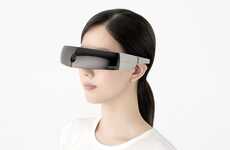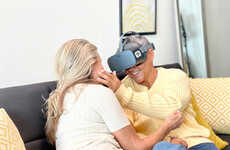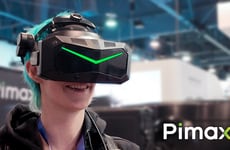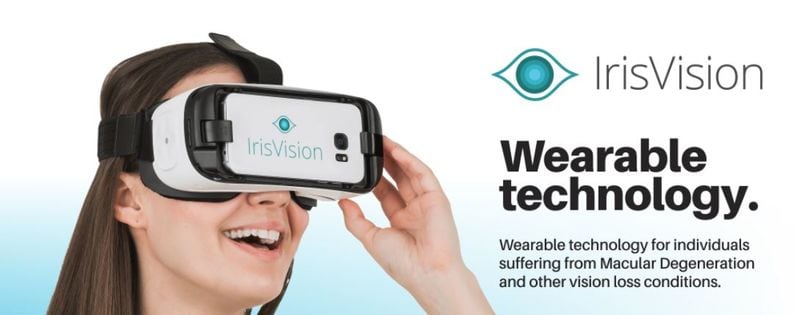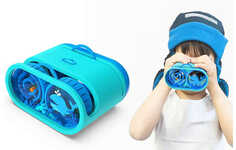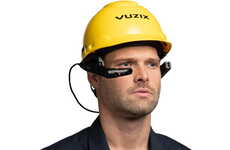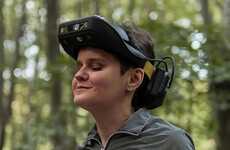
IrisVision was Developed by LVS in Partnership with Samsung
References: lowvisionmd.org & prweb
Virtual reality technology is typically discussed in terms of things like entertainment, but IrisVision shows that the applications are broader than fun alone. The IrisVision device, which was founded by Dr. Frank Werblin, an MIT graduate, Guggenheim fellow, and professor at UC Berkeley, in partnership with Samsung, uses a VR headset to offer people with macular degeneration better conditions for reading, working on computers, seeing faces clearly, or watching television.
Though VR often gets criticized for the degree to which people tune out of the real world when using it, IrisVision does quite the opposite. The device uses a 16-megapixel camera mounted on top of a VR headset to magnify the wearer's field of vision inside of a "bubble" on the screen. The magnification of images inside that bubble can be adjusted, as can the size of the bubble itself. Macular degeneration impacts confined areas of peoples' fields of vision, so IrisVision combats that symptom directly.
Though VR often gets criticized for the degree to which people tune out of the real world when using it, IrisVision does quite the opposite. The device uses a 16-megapixel camera mounted on top of a VR headset to magnify the wearer's field of vision inside of a "bubble" on the screen. The magnification of images inside that bubble can be adjusted, as can the size of the bubble itself. Macular degeneration impacts confined areas of peoples' fields of vision, so IrisVision combats that symptom directly.
Trend Themes
1. Vr-based Low Vision Aids - There is potential for further development of VR-based low vision aids to serve disabled individuals and improve their quality of life.
2. Medical VR Technology - Medical institutions can explore the potential of VR technology for their patients, and create more innovative products for individuals with various health conditions.
3. Assistive Technology Advancement - The development of assistive technology is an area of growth, where companies can explore and create innovative solutions that can serve individuals with disabilities.
Industry Implications
1. Healthcare - Medical professionals can explore the potential of IrisVision technology in other medical applications, such as surgeries or patient experiences.
2. Tech - Technology industries, including both VR and wearable device markets, can leverage the IrisVision technology in their product development to create innovative solutions for individuals with disabilities.
3. Disability Services - Disability service providers can incorporate IrisVision devices as a part of their offerings and boost their technological capabilities, to create greater accessibility and inclusion for their clients.
2.5
Score
Popularity
Activity
Freshness

